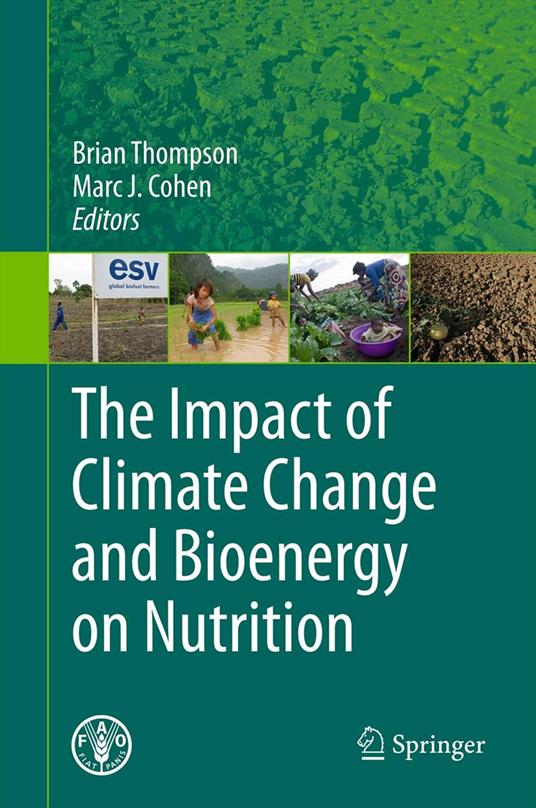The Impact of Climate Change and Bioenergy on Nutrition
Climate changes will affect food production in a number of ways. Crop yields, aquatic populations and forest productivity will decline, invasive insect and plant species will proliferate and desertification, soil salinization and water stress will increase. Each of these impacts will decrease food and nutrition security, primarily by reducing access to and availability of food, and also by increasing the risk of infectious disease. Although increased biofuel demand has the potential to increase incomes among producers, it can also negatively affect food and nutrition security. Land used for cultivating food crops may be diverted to biofuel production, creating food shortages and raising prices. Accelerations in unregulated or poorly regulated foreign direct investment, deforestation and unsustainable use of chemical fertilizers may also result*.* Biofuel production may reduce women’s control of resources, which may in turn reduce the quality of household diets. Each of these effects increases risk of poor food and nutrition security, either through decreased physical availability of food, decreased purchasing power, or increased risk of disease. The Impact of Climate Change and Bioenergy on Nutrition articulates the links between current environmental issues and food and nutrition security. It provides a unique collection of nutrition statistics, climate change projections, biofuel scenarios and food security information under one cover which will be of interest to policymakers, academia, agronomists, food and nutrition security planners, programme implementers, health workers and all those concerned about the current challenges of climate change, energy production, hunger and malnutrition.
-
Curatore:
-
Anno edizione:2016
-
Editore:
-
Formato:
Formato:
Gli eBook venduti da Feltrinelli.it sono in formato ePub e possono essere protetti da Adobe DRM. In caso di download di un file protetto da DRM si otterrà un file in formato .acs, (Adobe Content Server Message), che dovrà essere aperto tramite Adobe Digital Editions e autorizzato tramite un account Adobe, prima di poter essere letto su pc o trasferito su dispositivi compatibili.
Cloud:
Gli eBook venduti da Feltrinelli.it sono sincronizzati automaticamente su tutti i client di lettura Kobo successivamente all’acquisto. Grazie al Cloud Kobo i progressi di lettura, le note, le evidenziazioni vengono salvati e sincronizzati automaticamente su tutti i dispositivi e le APP di lettura Kobo utilizzati per la lettura.
Clicca qui per sapere come scaricare gli ebook utilizzando un pc con sistema operativo Windows



